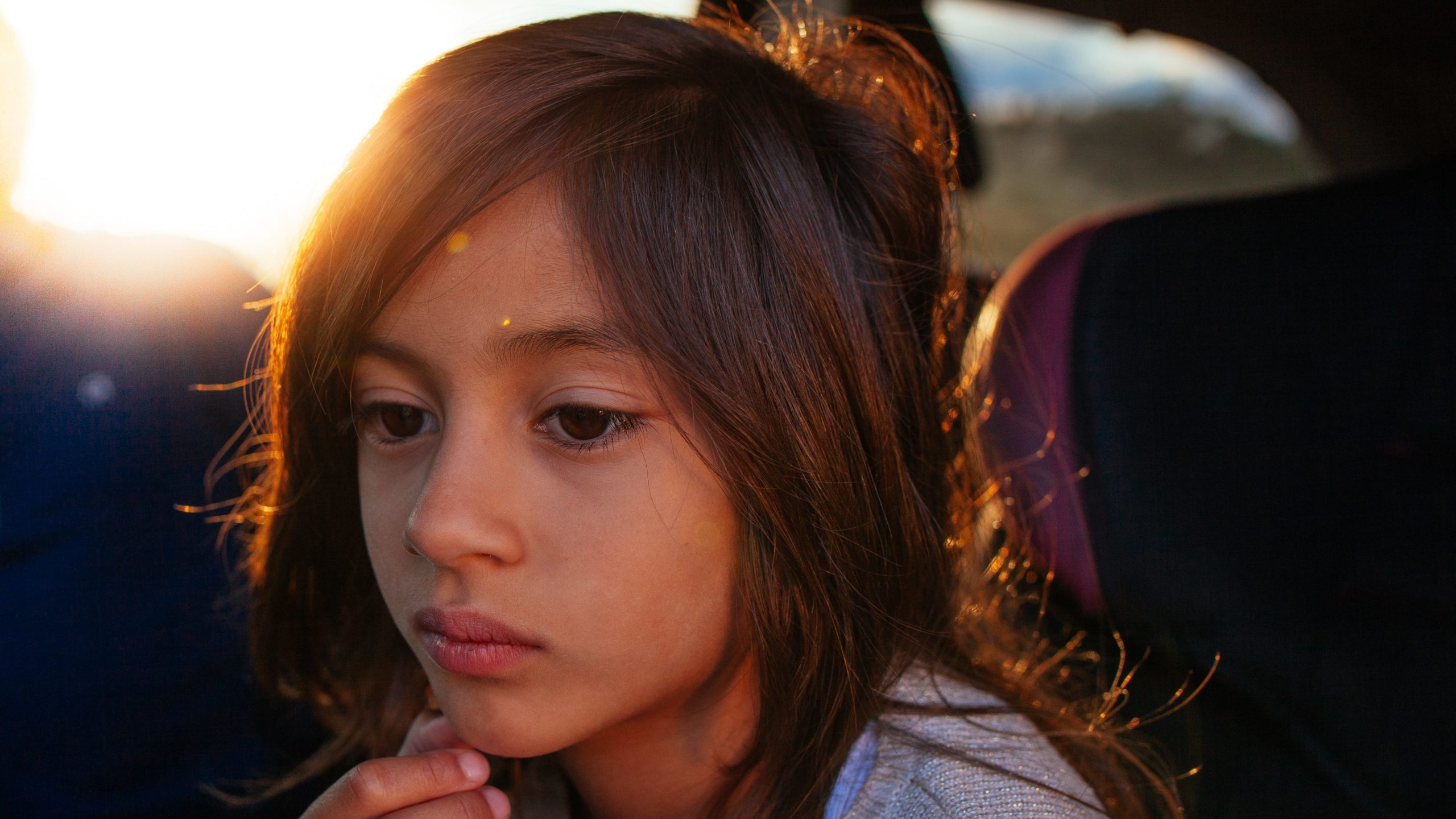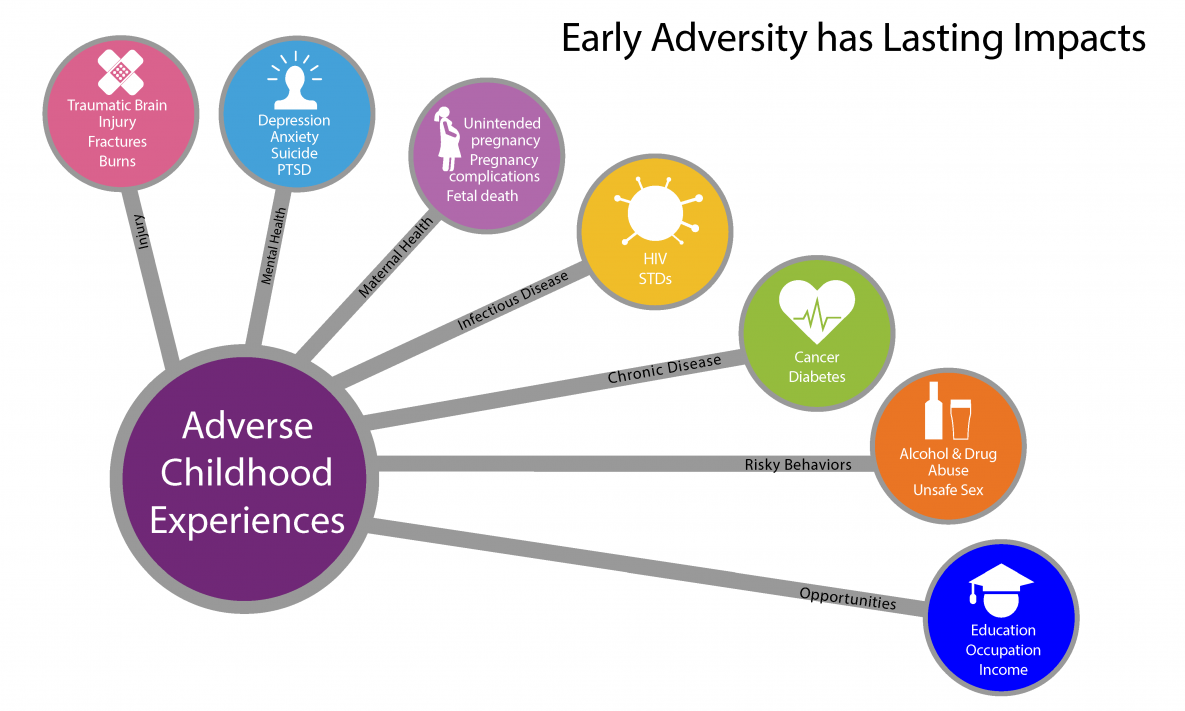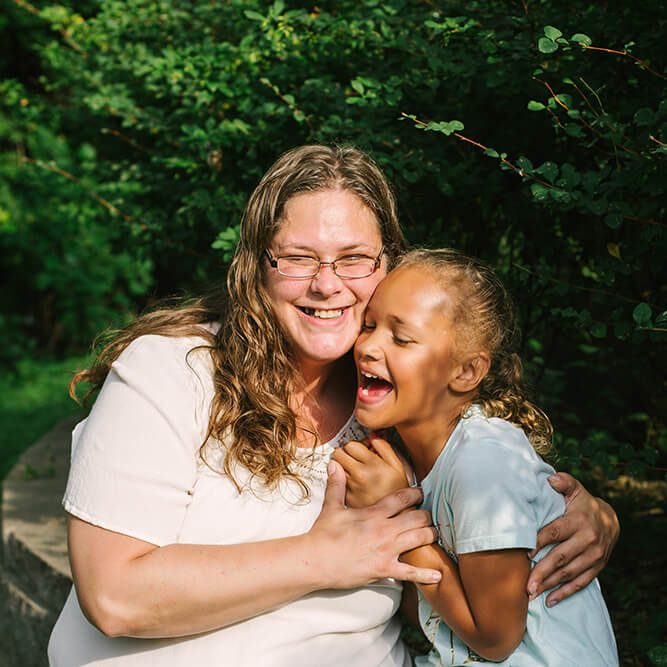
More than 85% of the women we serve have experienced trauma. So what’s the connection between childhood trauma and addiction?
The two are closely linked, but there is hope for recovery from both with the right trauma-informed treatment.
Childhood trauma – what is it and how common?
Unfortunately, childhood trauma is more common than you might think. More than two thirds of all children report at least one traumatic event by age 16. Trauma can span a wide range of experiences, from domestic abuse to natural disasters.
Some common examples:
- Violence in the community or at home
- Emotional, physical or sexual abuse
- Physical or emotional neglect
- Natural disasters
- War, terrorism or refugee experiences
- Sudden or violent loss of a loved one or family member
- Serious illness of you or a loved one
- Substance use or mental illness in the household
- Racism and oppression
- Food or household instability (e.g. homelessness, incarcerated or separated parents, poverty, etc)

Researchers have created a way to measure the impact of traumatic events occurring before age 18 in the form of the Adverse Childhood Experience (ACE) score. A high ACE score correlates strongly to increased risk for physical and mental health conditions –including substance use disorder and PTSD, and especially for women and BIPOC individuals.
How trauma lives in the body through adulthood
When children are exposed to trauma over time, it can radically disrupt their emotional and physical development. Your body reacts to trauma by triggering an internal fight or flight “alarm system” meant to keep you safe from harm. This alarm system can be activated even far into the future, sometimes without a person even realizing the trigger.
If you grew up with toxic levels of stress or trauma, your alarm system may be stuck in overdrive. You may struggle to recognize or develop healthy, stable relationships. You may also have difficulty dealing with negative emotions. These are all coping strategies that you developed as a child to survive trauma, which are now no longer useful.

Between 25-75% of trauma survivors report problematic alcohol use. Recovery is possible with trauma-informed care. Read the stories of recent Wayside alumni about processing trauma in recovery at Wayside.
The link between trauma and substance use
Many trauma survivors turn to self-harm or substance use to cope with emotional pain, bad memories, poor sleep, guilt, shame, anxiety, depression or PTSD. In fact, substance use and trauma can become a vicious cycle –a woman may use substances to deal with the pain of childhood trauma but find that her substance use places her in further traumatic situations.
Trauma-related disorders like PTSD very often occur alongside substance use disorder in women. Substance use can make the symptoms of trauma worse. Drugs and alcohol affect concentration, productivity, sleep quality and coping abilities. They can also increase feelings of emotional numbness, social isolation, anger, depression and the feeling that you always need to be on guard.
Research has demonstrated a strong relationship between trauma and…
- …starting alcohol use at a young age.
- …a higher risk of mental and substance use disorders late in life (age 50+).
- …smoking as an adult.
- …lifetime drug use, drug dependency and self-reported addiction.
- …low-quality or disturbed sleep.
- …lifetime depressive episodes.
OVERCOMING CHILDHOOD TRAUMA AND ADDICTION –there is help and hope
The most important thing to remember is that even though trauma often leads to substance use, it is not fate. You can make a change with the right support, no matter how long you have been living (surviving) with trauma. Many women are able to heal from major trauma.
The Wayside mission is founded in the idea of healing women whose substance use is complicated by mental health needs. Our care is trauma-informed and designed to help you break the cycle of addiction. We are here to help you and your family heal from your past and work towards wellness, stability and a better quality of life.
We offer tools and support for women in all stages of recovery –from residential treatment for women and families, to maintenance in an outpatient setting and access to a recovery community that understands where you are coming from.
Ready to take the next step?
Call Wayside intake now to book an assessment or ask about what route is best for you: 651-242-5540
—–
MORE ON CHILDHOOD TRAUMA AND ADDICTION:
- CDC, “Preventing Adverse Childhood Experiences”
- International Society for Traumatic Stress Studies, “Traumatic Stress and Substance Abuse Problems”
- MN Prevention Resource Center, “The Role of ACES in Substance Misuse and Related Behavioral Health Problems”
- NPR, “Take the ACE Quiz”
- SAMSHA, “Understanding Child Trauma”
